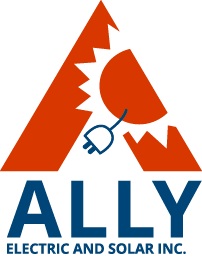Lower-Quality Equipment: The Shortcuts in Cheap EV Charger Installations
/When it comes to EV charger installations, you might be tempted by lower prices, but often, they come with compromises that can cause more headaches down the road. Here’s what you need to know about some of the shortcuts that make cheap installs risky:
Cheap EV Chargers: Lower-priced chargers may lack important features like smart capabilities, safety certifications, or built-in protections. These chargers might not handle the power demands of modern EVs, or they may not last as long. Sure, the price is tempting, but you’re often trading reliability for a quick deal.
Inadequate Wiring: Budget installers sometimes use cheaper wiring, like aluminum wire instead of copper. Aluminum may save a few bucks upfront, but it’s much more prone to corrosion and expansion when temperatures fluctuate. This can lead to loose connections, overheating, and a higher risk of fire hazards. Copper wire, while a bit pricier, is much more durable and reliable for high-power systems like EV chargers.
Substandard Circuit Breakers: The circuit breakers used in cheaper installs may not meet safety standards, which can increase the risk of electrical fires or a system failure. Quality breakers are there to protect your home and the vehicle you’re charging, so don’t skimp on this important part.
Low-Grade Mounting and Enclosures: Cheap installations may also cut corners with the mounting brackets or enclosures that hold your charger. These might be made from materials that wear down more quickly or degrade in the weather, causing long-term problems and potential safety issues.
Lack of Compliance with Standards: Some low-cost installations might use non-certified equipment that doesn’t meet local or national electrical codes. Not only does this increase the risk of a malfunction, but it could also void your warranty or make it harder to get insurance coverage. Plus, many cities require a permit and approval for EV charger installations, especially if it involves electrical work. Skipping these legal steps can cause issues later, including fines or delays, and it can even affect your insurance claims if something goes wrong.

